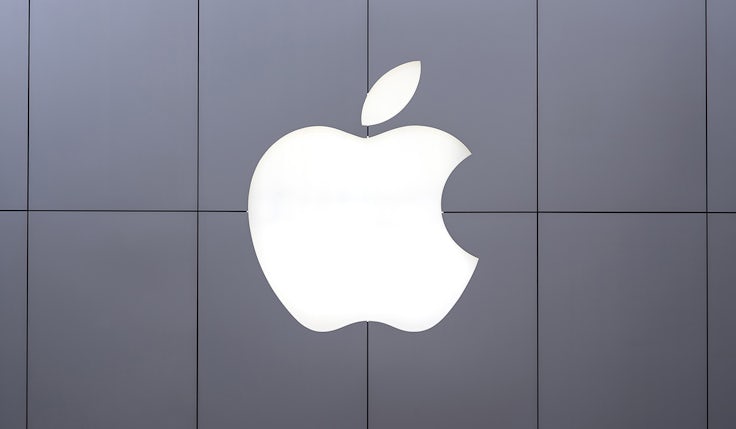B2B marketing, effectiveness, influencers: 5 interesting stats to start your week
We arm you with all the numbers you need to tackle the week ahead.
Almost two-thirds of B2B marketers say their marketing strategy is “incomplete” without influencers
While B2B marketers may have been slower to embrace influencer marketing than their B2C counterparts, working with creators is now a core element of their marketing plans.
According to new data from LinkedIn, 94% of the 3,000 B2B marketers it surveyed globally say influencer marketing is among their most effective strategies to achieve direct sales.
Just under two-thirds (63%) say their marketing strategy is “incomplete” without influencer and creator partnerships. The majority (82%) are confident these campaigns will directly lead to sales by the end of 2025.
LinkedIn’s 2025 B2B Marketer Sentiment Research also finds 91% of B2B marketers say grabbing audience attention is their biggest worry during campaigns. For two-thirds (66%) of respondents, investing in video is key to not losing out to the competition.
Creativity in B2B has been a hot topic in recent years. It makes sense, therefore, that 80% of B2B marketers say they need to invest in creative strategies to stand out. However, that still leaves 20% who don’t agree with the need for creativity.
Source: LinkedIn
Almost 70% of UK households subscribe to a streaming service
 As marketers continue to grapple with platform fragmentation, new data shows 20.1 million UK households – 67.5% of the country – now subscribe to at least one subscription video-on-demand (SVOD) service.
As marketers continue to grapple with platform fragmentation, new data shows 20.1 million UK households – 67.5% of the country – now subscribe to at least one subscription video-on-demand (SVOD) service.
According to Barb’s 2025 Q1 Establishment Survey, this marks a slight rise from 20 million in Q4 2024.
Netflix remains the clear frontrunner, with 17.4 million UK homes (59.2%) subscribing as of Q1 2025. However, just 28% of Netflix homes, or around 4.8 million UK households, use the ad tier – up from 4.7 million in the previous quarter
Amazon Prime Video also saw a modest uptick in subscribers, reaching 13.4 million UK homes (45.7%), up from 13.3 million in Q4. Due to Amazon’s automatic enrolment approach, 87% of these homes – around 11.7 million (39.9%) – are on its ad tier.
Elsewhere, the Barb data finds Disney+ saw 23% of its homes – 1.7 million (5.8%) – shift to its ad tier in Q1 2025, up from 1.5 million in the previous quarter. However, total Disney+ subscriptions dipped to 7.3 million (24.8%), down from 7.6 million in Q4.
On other platforms, 3.1 million UK households watched Discovery+ and Paramount+ respectively, 2.7 million used Apple TV+ and 1.8 million used Now.
Source: Barb
Half of marketers (53%) struggle to integrate AI into their work
 As marketers weigh up how to integrate artificial intelligence (AI) into their work, many are reporting issues.
As marketers weigh up how to integrate artificial intelligence (AI) into their work, many are reporting issues.
More than half (53%) of marketers report major issues integrating AI within their data stack, according to a survey of 500 marketers by content platform Knotch.
Meanwhile, almost two-thirds of marketers say AI-generated outputs contained factual errors, meaning the content AI is generating for many is wrong.
When asked how they are using AI in their daily work, almost all respondents say they are still treating AI as experimental, rather than operational. Overall, marketers say they want “high-performing outputs” that they can trust.
Source: Knotch
Top emotional ads convert into more sales impact
 Emotionally resonant ads are more likely to succeed commercially, according to Zappi’s State of Creative Effectiveness research.
Emotionally resonant ads are more likely to succeed commercially, according to Zappi’s State of Creative Effectiveness research.
Ads in the top quartile for emotional connection see almost double the sales impact of their less emotional counterparts, in the 78th percentile versus 41st. The research also finds that while humour resonates in terms of enjoyment, it doesn’t map fully into purchase consideration.
Meanwhile, the research finds celebrity appearances increase distinctiveness and are used in around one in four ads. However, their presence doesn’t automatically improve effectiveness.
Ads with famous faces rank in the 55th percentile for brand impact, compared with ads which don’t feature celebrities which sit within the 63rd percentile.
In terms of categories, food ads drive the biggest short-term lift for purchasing at 29%, followed by alcohol ads (27%). Pet care ads achieved the highest overall emotional score – 68 out of 100 – while financial services scored lower at 47%.
Source: Zappi
More than half of sports fans (52%) trust athlete product recommendations
 Product recommendations by athletes are more likely (52%) to resonate with sports fans than recommendations from actors (41%), musicians (41%) and influencers (24%), according to a new report from YouGov.
Product recommendations by athletes are more likely (52%) to resonate with sports fans than recommendations from actors (41%), musicians (41%) and influencers (24%), according to a new report from YouGov.
Just under a third (30%) of sports fans in Britain value athletes for their off-pitch personalities. Lewis Hamilton, Lando Norris and Harry Kane are the top male athletes, while Emma Raducanu, Keely Hodgkinson and Lauren James top the list of female athletes.
In terms of club loyalty, a small but significant 12% of sports fans have bought merchandise from a team they do not support, while fans aged 18-24 are the most likely to show allegiance by buying merchandise or purchasing based on athlete endorsements.
“In today’s dynamic sports and media landscape, individual athletes are not just representatives of their teams, they are influential brands in their own right,” says Nicole Pike, global head of sport at YouGov. “Their voices carry weight, especially when they speak out on social issues, and their platforms often rival those of the organisations they play for.”
Source: YouGov








